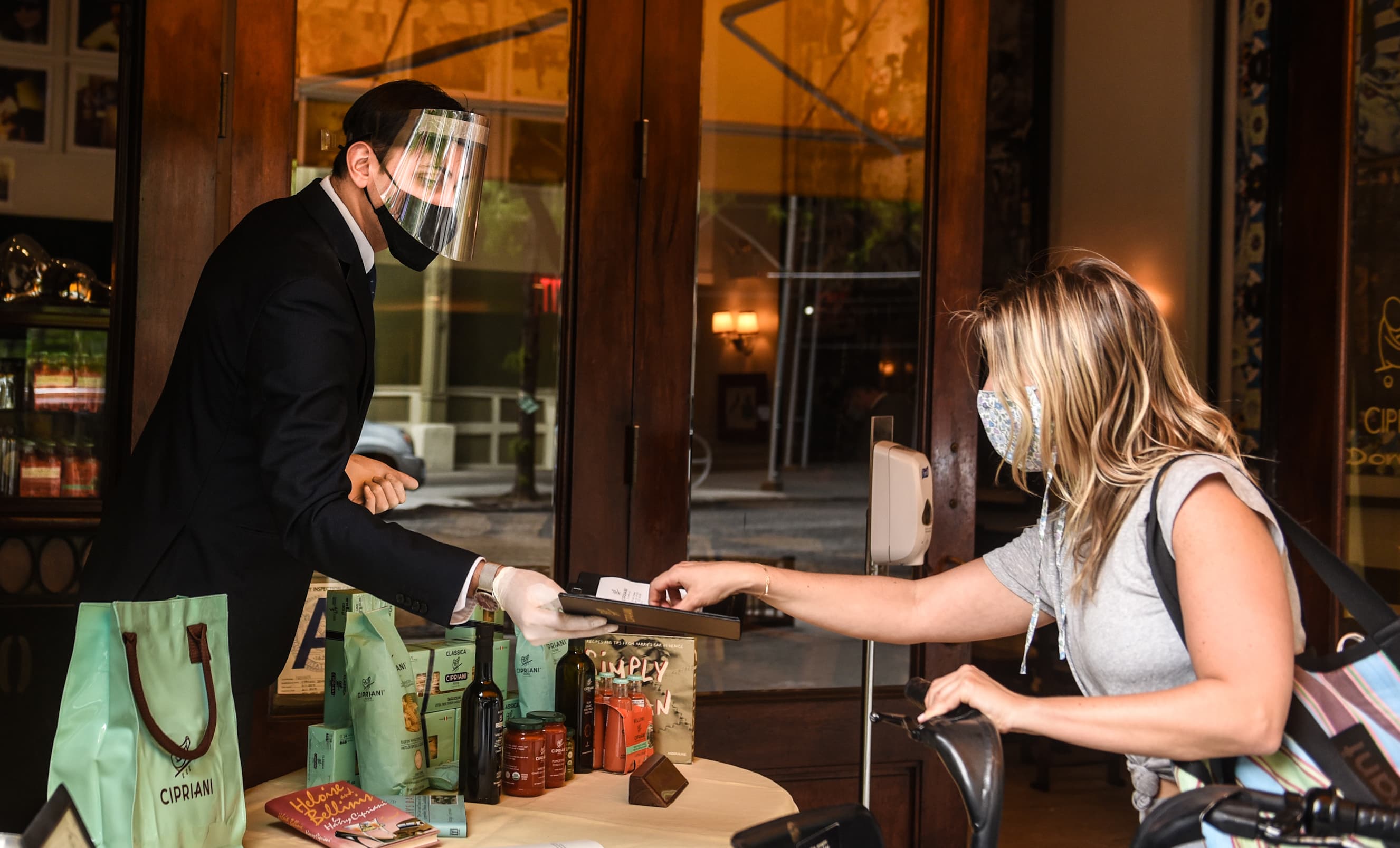Restaurateur Danny Meyer on stimulus need: ‘We cannot reemploy people if we go out of business’

Famed restaurateur Danny Meyer told CNBC on Wednesday that the dining industry desperately needs government aid due to the coronavirus pandemic, warning of significant economic damage without it.
“We cannot reemploy people if we go out of business,” Meyer said “Closing Bell,” one day after President Donald Trump put an end to broader Covid-19 stimulus negotiations “until after the election.” Trump later expressed support for smaller bills targeting the airline industry, small business and stimulus checks for individual Americans.
Meyer, who is CEO of Union Square Hospitality Group and founder of burger chain Shake Shack, called the halt to relief talks a “crushing blow” for those in the restaurant business. He said that is especially true as restaurants grapple with the uncertainty around colder weather, complicating the pandemic-era lifeline of outdoor dining.
“I think that the country needs to understand that this is an industry with 600,070 members. We are too broad to fail,” he said. “We’re not like the auto industry or airline industry, where you can get your arms around just a small handful of carriers.”
Last week, a $2.2 trillion coronavirus relief package passed by the Democratic-led House of Representatives included the so-called RESTAURANTS Act, which offers $120 billion for independent restaurants to help cover payroll and other operating costs.
New York City restaurants are reopening to indoor dining on Sept. 30 at 25% capacity, and “safety is the new hospitality” according to restaurant mogul and CEO of Union Square Hospitality Group Danny Meyer.
Stephanie Keith | Getty Images
Restaurants have faced significant challenges during the health crisis, with many having to stop on-premise dining in March as governors implemented restrictions designed to slow transmission of the coronavirus. Upon reopening, restaurants have faced capacity restrictions and other pandemic-related challenges that add to difficulties in an already low-margin business.
As of Aug. 31, Yelp data showed that 32,109 restaurants in the U.S. had closed during the pandemic, 61% of which were classified as permanent. The other 39% were considered temporary.
In February, before Covid-19 upended daily life, there were 12.3 million people working in restaurants or bars on a seasonally adjusted basis, according to the Bureau of Labor Statistics. In April, that number plummeted to about 6.2 million. It was at just under 10 million as of September.
“They can’t be hired back unless restaurants can reopen,” said Meyer, whose New York City establishments include the Union Square Cafe and Gramercy Tavern.
He emphasized the role restaurants play in cities and neighborhoods as the U.S. economy tries to recover from the lows of the pandemic.
“We are part of the psychological and emotional fabric of communities, and restaurants have just been heroic in trying to hang on,” he said.




